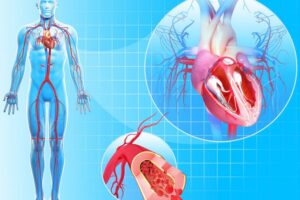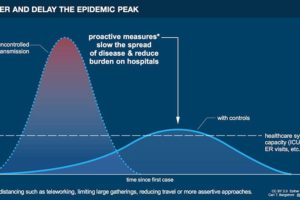Osteoporosis
Osteporosis is the most common disease impacting the health of our bones. We all know someone who has it or have likely seen someone who has it as they often require movement assistance in their old age with a cane, or a walker. While the disease is not exclusive to the elderly, it does impact them more than other age groups. In the past there was a lot of attention on calcium. Many of us can remember the commercials back in the 80’s and 90’s advertising milk as a way to build stronger bones. The advertising was so strong that today when most think of bones they think of calcium. The late 90’s and early 2000’s saw the rise of Vitamin D (the sunshine vitamin) as a potential nutrient of concern with osteoporosis. While these two nutrients are important this article will focus on another nutrient, Vitamin K.
Vitamin K for bone health
When it comes to Vitamin K, research has shown a link between deficiency of Vitamin K and osteoporosis (Flore et al., 2013). Vitamin K is important to bone health as it is part of two proteins, matrix Gla protein and osteocalcin. Without Vitamin K these two proteins don’t work and they are important because osteocalcin pulls calcium into bone and matrix Gla protein prevents calcium from depositing into your arteries where they can contribute to hardening of the arteries (atherosclerosis). If you’re taking calcium supplements but have a deficiency of Vitamin K you may be increasing your risk of heart attacks as the body will have a difficult time taking the calcium into the bones from the blood stream (Bolland et al., 2010).
According to the National Institutes of Health, Vitamin K has what is called an Adequate Intake (AI) level that varies depending on age but they report that adults over 19 years of age should aim for 120mcg of Vitamin K for men and 90mcg for women (Office of Dietary Supplements, 2018). The AI means that there was no established upper limit for Vitamin K as it has a low potential for toxicity (Office of Dietary Supplements, 2018). This is great news as it means that unlike other fat soluble vitamins like Vitamin A, Vitamin K can be supplemented in the diet with little worry that it will cause toxicity issues, though it’s easy to get enough as long as you’re eating your greens every day. If you’re eating the standard American diet (SAD) of processed and fast foods, and many of you are, you may be at risk of a deficiency or a deficient level to handle calcium supplementation (Schwalfenberg, 2017).
How much and where do I get it?
For the average person looking to prevent osteoporosis with whole foods there are lots of options such as Natto which provides 850mcg per serving, or collard greens that provide 530mcg per serving. Now you have yet another reason to eat your greens as the top sources of Vitamin K (collard greens, turnip greens, spinach, and kale) are rich in Vitamin K (Office of Dietary Supplements, 2018). Pizzorno, Miller, and Joiner-Bey (2016) recommend 100mcg a day of Vitamin K2 for the treatment of osteoporosis. One study found that 45mcg of Vitamin K with 800 IU of Vitamin D and 1200mg of calcium reduced fracture risk by 25% (Gajic-Veljanoski, 2012). A single serving of collard greens, turnip greens, spinach, kale, and broccoli can all supply this same amount but if you have difficulty digesting greens or just find that you can’t stomach them, then a simple Vitamin K2 supplement can do the job as well. Unless you have a medical reason to avoid greens, I would stick to the food sources as you will get a synergistic effect from the greens due to the phytochemicals, antioxidants, other essential vitamins and minerals in them. In addition you will also be surprised with how much calcium they have as well.
Interactions
There are some things that can interfere with Vitamin K absorption such as antibiotic use longer than 10 days, the drug Dilantin (used in pregnancy or nursing), a low fat diet or fat blocking drugs like Orlistat, Xenical, and Olestra, bile acid sequestrants which prevent the absorption of fat, mineral oil, the preservative butylated hydroxytoluene (BHT) (Schwalfenberg, 2017). If any of these apply to you, talk to your Integrative Nutritionist to see if supplementation is the best option.
References:
Bolland, M. J., et al. (2010). Effect of calcium supplements on risk of myocardial infarction and cardiovascular events: meta-analysis. BMJ (Clinical Research Ed.), 341c3691. doi:10.1136/bmj.c3691
Flore, R., et al. (2013). Something more to say about calcium homeostasis: the role of vitamin K2 in vascular calcification and osteoporosis. European Review For Medical And Pharmacological Sciences, 17(18), 2433-2440.
Gajic-Veljanoski, O., et al. (2012). Vitamin K supplementation for the primary prevention of osteoporotic fractures: is it cost-effective and is future research warranted?. Osteoporosis International: A Journal Established As Result Of Cooperation Between The European Foundation For Osteoporosis And The National Osteoporosis Foundation Of The USA, 23(11), 2681-2692. doi:10.1007/s00198-012-1939-4
Office of Dietary Supplements. (2018). Vitamin K. National Institutes of Health. Retrieved from: https://ods.od.nih.gov/factsheets/VitaminK-HealthProfessional/
Pizzorno J., Murry M., Joiner-Bey, H. (2016) The clinician’s handbook of natural medicine (3rd ed.). Churchill Livingstone. Elsevier.
Schwalfenberg, G. K. (2017). Vitamins K1 and K2: The Emerging Group of Vitamins Required for Human Health. Journal of Nutrition and Metabolism, 2017, 6254836. http://doi.org/10.1155/2017/6254836







